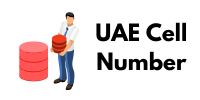Are You Open today’s competitive digital landscape, businesses and individuals alike are exploring various strategies to gain visibility, drive traffic, and increase sales or conversions. One of the most powerful tools available is paid advertising. But before diving in, it’s essential to consider the purpose, benefits, risks, and requirements involved in launching a paid campaign.
Understanding Paid Advertising Are You Open
Paid advertising refers to any marketing shop effort where businesses pay to promote their content, products, or services through platforms like Google Ads, Facebook Ads, Instagram, LinkedIn, or even influencer collaborations. The model usually works on a pay-per-click (PPC), pay-per-impression (CPM), or pay-per-action (CPA) basis.
Common Platforms and Their Strengths
Google Ads: Excellent for capturing demand via search queries. It allows precise targeting through keywords.
Facebook and Instagram Ads: Highly phone number lists for utility services visual and ideal for brand awareness, retargeting, and community building.
LinkedIn Ads: Effective for B2B marketing and reaching professionals by job title, company size, or industry.
Great for long-form video content and product demonstrations.
Each platform has its nuances, and the choice largely depends on your business goals and where your target audience spends time.
Why Consider Paid Advertising?
If you’re asking yourself whether you’re open germany cell number to running paid campaigns, it’s worth considering the numerous advantages they offer.
Rapid Results
Unlike organic growth strategies (SEO, content marketing, or social media growth), paid campaigns can generate traffic, leads, and sales almost instantly. Once an ad is launched and approved, it can reach thousands of people within hours.
Targeted Reach
Paid ads allow for highly granular targeting based on demographics, behavior, interests, location, and even purchasing intent. This ensures your message reaches those most likely to engage or convert.
Scalable Strategy
Once a campaign proves profitable, it can be scaled quickly by increasing the budget or expanding the audience. This makes paid advertising a strong tool for startups and growing brands looking to build momentum.
Challenges and Considerations
Despite its benefits, paid advertising is not a guaranteed success. It requires strategic planning, budget management, and constant monitoring.
Budget Management
One of the biggest concerns is cost. Poorly managed campaigns can burn through budgets with minimal return. It’s essential to set clear goals and KPIs (key performance indicators), such as cost-per-click (CPC), conversion rate, and return on ad spend (ROAS).
Creative and Copywriting
Success in advertising relies heavily on the quality of visuals, headlines, ad copy, and landing pages. Even with great targeting, poor creative can lead to underperformance.
Learning Curve and Optimization
Running ads effectively requires time and skill. Whether it’s setting up tracking pixels, split-testing ads, or interpreting analytics, there’s a learning curve involved. Without ongoing optimization, campaigns can stagnate or perform suboptimally.
Who Should Run Paid Campaigns?
Paid advertising isn’t for everyone—and that’s okay. It depends largely on your goals, resources, and willingness to experiment.
Ideal Scenarios for Paid Ads
Product Launches: Gain immediate visibility for new offerings.
E-Commerce Businesses: Retarget cart abandoners or upsell existing customers.
Service Providers: Generate leads through lead magnets or consultations.
Content Creators: Boost engagement or grow an audience rapidly.
If you have a clear goal, a defined audience, and the resources to test and optimize, then you’re likely in a good position to run paid campaigns.
When to Hold Off
If your business is still refining its core offer, lacks an optimized website or landing page, or has a very limited budget, it may be wise to focus on organic efforts first. Paid ads can amplify a solid foundation—but they can’t fix a broken one.
Conclusion: Are You Ready?
So, are you open to running paid advertising campaigns? The answer depends on your current business stage, objectives, and willingness to commit to testing and learning.
When done right, paid advertising can be a game-changer—offering scalability, measurable results, and a competitive edge.
